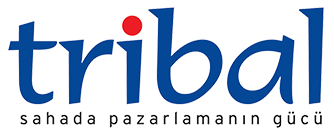In January 2024, one of the most engaging topics at the World Economic Forum held in Davos was undoubtedly artificial intelligence. “New Work, New World,” a joint study by Oxford Economics and Cognizant, was one of the noteworthy publications.
Cognizant, a company recognized globally for its digital transformation services and listed in Forbes Global 2000 and Fortune Modern Board, operates under the motto “Engineering Impact for Good.” The company has commissioned Oxford Economics to research the impact of productive AI technologies on the U.S. economy over the next decade. The research analyzed 18,000 job categories, studying the transition processes to productive AI and their impact on business processes, reporting three different scenarios. Here are the research findings:
– By 2032, it is projected that technology will contribute an additional $1 trillion 43 million to the American economy, with productivity being the main driver. An increase in productivity of 1.7% to 3.5% is expected. A detailed examination of the research reveals that these figures are a realistic average considering sector dynamics.
– Within 10 years, 13% of companies will have transitioned to productive AI within three to four years, and 46% within ten years. A gradual transformation will begin over the next four to eight years, then accelerate and continue for at least 15 more years.
– In ten years, 90% of today’s jobs will be affected in some way by this technological transformation. The impact will be felt across all levels, from secretaries to CEOs. According to the research, 5% of jobs will change significantly, with an expected 9% reduction in the workforce. One of the most striking findings of the report is that while AI will eliminate production-focused and unskilled jobs, decision-makers will be less affected. The research predicts changes in credit evaluation, computer programming, and graphic design jobs will reach 50% and continue to increase. It is reported that C-Level executives and CEOs will also see varying percentages of their tasks, such as using information and evaluating analysis reports, transferred to AI.
Consider the daily operations of a travel agency: transmitting tour details to customers, gathering general information for itinerary planning, and creating budgets that include flights and accommodations. When these processes are transferred to AI, eliminating human error becomes a reality, with 63% of these processes predicted to be automated. The only task deemed impossible without human touch is making flight and hotel reservations via phone or computer, with only 13% automation reflected here. A total of 53% reduction in labor is anticipated in the example of the travel agency.
In light of these data, Cognizant shares a roadmap focused on how the working world will manage this transition and, most importantly, how AI, the most feared technology, will benefit humanity in the workplace:
1. Valuing employees: Identifying general competencies and needs, planning AI awareness training for each employee, and increasing their motivation to adapt by reducing fears.
2. Creative solutions: AI will offer companies new revenue models, operational improvements, and innovative products and services. These will materialize through human creativity and vision, so ensuring that strategically placed employees recognize and share opportunities in their fields will accelerate transformation and enhance business outcomes.
3. Trust and transparency: Sharing AI transformation processes in full transparency with employees and making some decisions together will be crucial. Additionally, controls over AI applications and audits of processes must be structured within corporate information security.
4. Sharing opportunities: As AI takes over mundane, mechanical tasks, employees will have the chance to focus on areas like education and personal development, another point of transformation. This also includes the increasingly popular topic of reducing working hours.
I envision AI as someone with weak social skills but highly developed numerical intelligence, constantly improving themselves to perform perfectly, easing the workload of their colleagues—an intuitive, non-dramatic, and sought-after coworker. Given the realities of today’s work environment and considering our country’s increasing young unemployed population, technological literacy and foreign language skills are essential. These skills, not necessarily proportional to a university diploma, must be acquired through planned education programs like vocational schools to transform and employ the workforce. While the aforementioned transformations occur, our country must polish its resources and ensure our global presence through our inherent adaptability.
A final note; under the World Economic Forum, the “AI Governance Alliance” (AIGA) was established in June 2023. This is a working group represented by 200 different organizations and has over 250 members, focusing on the safety, regulation, and implementation of technology and systems. The management committee includes representatives from Meta, IBM, Oxford University, Bain & Company, OpenAI, Microsoft, Google, and the Rwandan Minister of Technology and Communication.
This article was published in Inc. Turkey.
https://incturkiye.com/makaleler/isin-ve-dunyanin-yeni-kodlari


